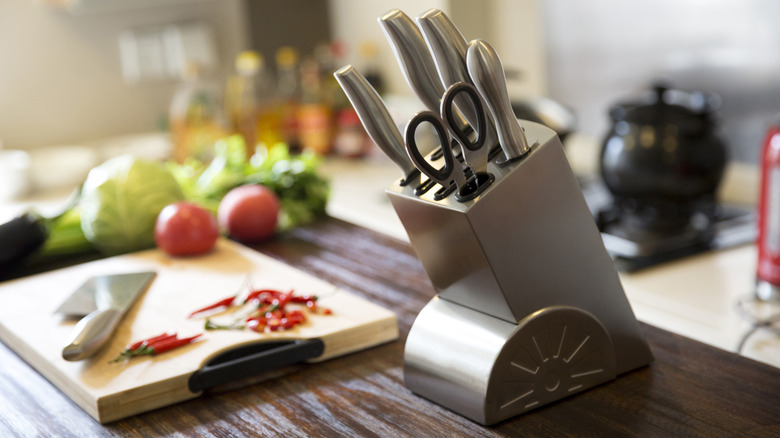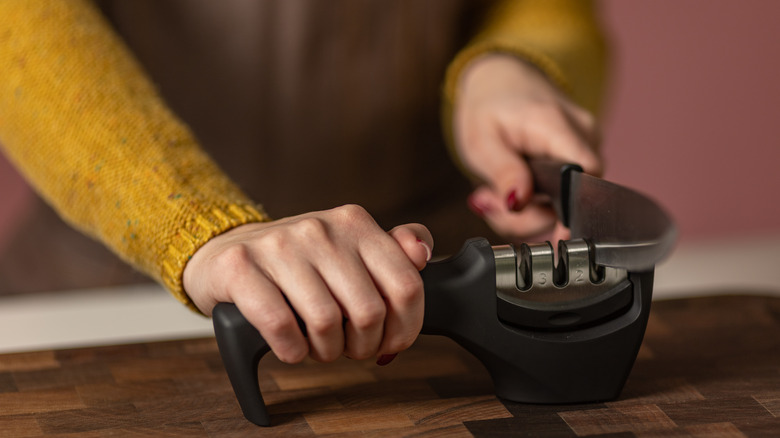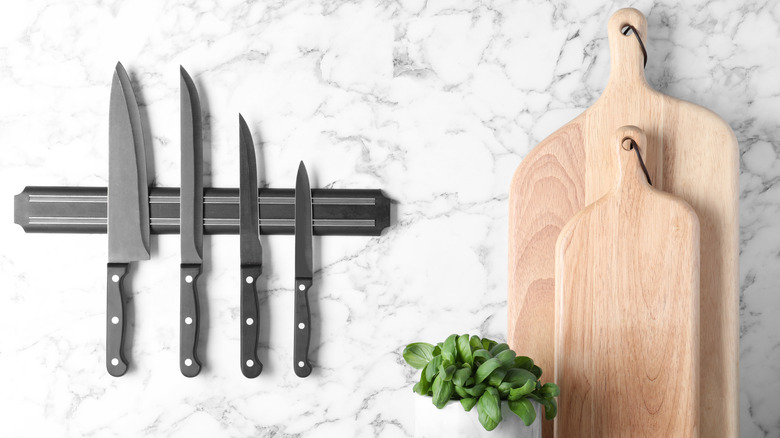You Should Never Own Enough Knives To Justify A Knife Block
Somewhere along the line, a knife block became a staple in the average home kitchen. Often given as a gift for college graduations and weddings, it serves as an indicator of young adults transitioning into a more mature chapter of life — one presumably filled with plenty of home cooking. However, no matter how much cooking one does at home, a knife block is largely unnecessary.
The truth is, most cooks need only about three knives to accomplish nearly any culinary task, making the half-dozen or more knives in a typical knife block superfluous. Rather than amassing a collection that includes a boning knife, bread knife, paring knife, utility knife, and specialized knives for cutting steak or cheese, it's wiser to invest in just a few high-quality knives. While they don't have to be made of high-quality Damascus steel, they should be built to last, given the frequent use they're likely to see.
Knife blocks aren't the most efficient or sanitary choice
Knowing that you don't need to own enough knives to fill up an entire knife block, it's important to take good care of the few you do decide to keep in your kitchen. As it turns out, a knife block isn't ideal for storage anyway. Knives can become dull or bent from repeatedly being inserted into and removed from the wooden block's narrow slots, which are also difficult to clean and can even harbor bacteria.
When it's time to clean your knives, avoid putting them in the dishwasher, as this can be damaging for the blades. Instead, wash them using a sponge, soap, and warm water. Once clean, store them in a location where they'll remain dry, clean, and separated from other kitchen utensils. Depending on how frequently you use your knives, you'll also need to sharpen them regularly, either by doing it yourself or by taking them to a professional for sharpening.
Storing your carefully selected knives
Ready to build your new, streamlined knife set? First, think about your most frequent cooking tasks. Have you ever broken down a whole chicken or fish with a knife? Do you regularly chop hardy vegetables and fruits like squash and melon? A serrated knife for bread, a large knife, and a paring knife are likely all you'll need to complete any kitchen project you can think of.
There's no need to discard your knife block if you already have one. However, if you're looking to downsize your kitchen or free up counter space, consider donating your knife block to a local donation center. With the extra counter space that used to be occupied by the knife block, you'll need an alternative for safely storing your knives.
One option is installing a magnetic strip on one of your kitchen walls for easy access and safe storage. Most home chefs should also be able to store their select few knives in the cutlery drawer. The best part? Clearing out your knife block frees up counter space for more attractive and functional appliances you've been eyeing.



